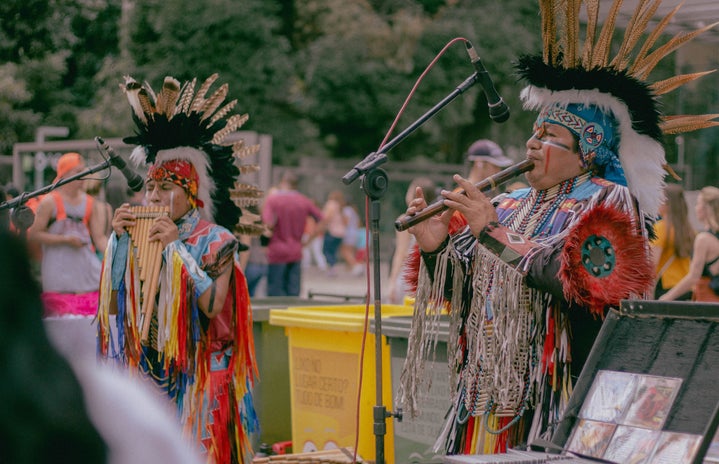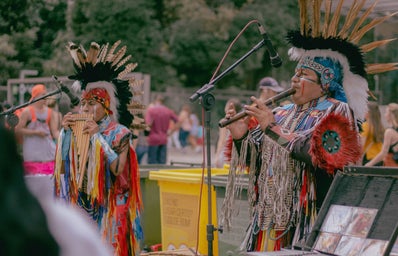Across the U.S., numerous municipalities joined a movement to recognize the second Monday of October as Indigenous Peoples’ Day. The holiday celebrates and uplifts the cultures, traditions and histories of the Native peoples of the U.S. While the day recognizes the importance of Native people in the country, it also reckons with historic injustices and current issues Native people face. Indigenous leaders first suggested the holiday during a 1977 United Nations conference. While speaking about matters of Indigenous sovereignty, the first item of action was “to observe Oct. 12, the day of so-called ‘discovery’ of America, as an international day of solidarity with the indigenous peoples of the Americas.” Indigenous leaders demanded the replacement of Columbus Day, which is a federal holiday, for Indigenous Peoples’ Day. The move would highlight the U.S.’ colonial past, which led to the massacre of millions of Native people and the forced assimilation that Native people have dealt with.
Since then, over a dozen states have recognized Indigenous Peoples’ Day, and cities continue to sign proclamations recognizing the holiday. Washington D.C. has also joined the municipalities that observe Indigenous Peoples’ Day. Native governments, like the Cherokee and Osage in Oklahoma, have replaced Columbus Day for Indigenous Peoples’ Day. Celebrations often include special panels, artistic displays, educational talks and cultural activities. Despite increased support, the move towards recognizing this holiday has happened very slowly. The United Nations waited 30 years after the 1977 conference to adopt the United Nations Declarations of Indigenous Rights, and many cities took years before picking up the momentum in recognizing the holiday. Many supporters of Columbus Day believe Indigenous Peoples’ Day erasures Italian-American history. For some, the recognition of Columbus as an important part of American history is a way to recognize the contributions of Italian Americans in the country. Because Italians faced discrimination and rejection after migrating to the U.S., Italians found pride in the holiday. Yet, instead of trying to erase Italian Americans, supporters of Indigenous Peoples’ Day often point out the colonial history that Columbus Day glosses over. Native communities have long highlighted the pain that celebrating Columbus Day causes – it symbolizes hundreds of years of trauma, colonization and wounds that they still face. Native communities continue to encounter violence against Indigenous women and human rights concerns. According to the Indian Law Resource Center, 80% of Native women have experienced violence and more than one in two have experienced sexual violence. Other Indian Law Resource Center studies have found that indigenous women on reservations are murdered at more than 10 times the national average. There is a clear cycle of violence towards Indigenous women, which prompted the Missing Murdered Indigenous Women movement. The movement focuses on high rates of disappearances and murders among Native women and girls, and it demands the end of disproportionate violence towards them. Through this holiday, Native people’s current conditions are forced into the spotlight instead of ignored.
Because public schools emphasize the “discovery of America,” creating heroes out of figures like Columbus, Indigenous Peoples’ Day is a way to rethink the history that’s been taught. The holiday seeks to highlight Native people’s ignored and the true nature of our society. While it doesn’t eradicate the past, it provides a venue to educate others while promoting intentional action to support Indigenous communities. Instead of perpetuating Indigenous erasure, take time during Indigenous Peoples’ Day to learn more about the diversity and depth of Indigenous culture. It is important to recognize and learn about the Indigenous land you occupy and to take steps to support Indigenous people around you. Indigenous Peoples’ Day is the first step toward making amends with the U.S.’s past and the continuous repression Indigenous people face. But it shouldn’t stop here – There are other ways to provide year-round support, such as reading Indigenous literature, contributing to mutual aid and making conscious efforts to highlight Indigenous voices.


